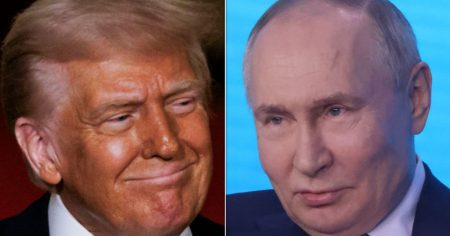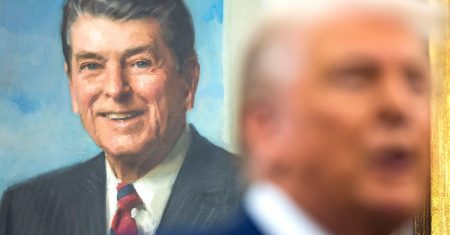Germany’s Pivotal Election: A Nation at a Crossroads
The Significance of the Election
On a pivotal Sunday, German voters headed to the polls to choose a new government, marking a critical juncture for Europe’s largest economy. The election, held seven months earlier than originally planned, comes amid widespread discontent with the current administration and a backdrop of significant challenges. Germany, a cornerstone of the European Union and a key player in NATO, has been grappling with years of economic stagnation, heightened tensions over migration, and growing uncertainty about the future of Ukraine and Europe’s alliance with the United States.
The outcome of this election will not only shape Germany’s domestic future but also influence the broader European and global landscape. As a leading supplier of weapons to Ukraine and a major contributor to NATO, Germany’s role in addressing these pressing issues is unparalleled. The election also takes place against the backdrop of shifting U.S. foreign policy, particularly under the Trump administration, which has adopted a more confrontational approach to international relations.
Who Are the Key Players?
The race is dominated by two leading figures: Friedrich Merz of the center-right Union bloc and incumbent Chancellor Olaf Scholz of the Social Democrats. Merz, a conservative front-runner, has consistently led in polls, with his party securing between 28-32% of the vote. Scholz, who has been leading a fractious coalition government, trails behind with his party polling at just 14-16%, which would represent the Social Democrats’ worst postwar result in a national parliamentary election.
The election has also seen the rise of the far-right Alternative for Germany (AfD), which is polling at around 20%, its highest level of support since World War II. The AfD, known for its anti-immigration stance, has fielded its first-ever candidate for chancellor, Alice Weidel. However, mainstream parties have vowed not to collaborate with the AfD, maintaining a political “firewall” against the far-right group.
Other contenders include the Greens, led by outgoing Vice Chancellor Robert Habeck, who are polling slightly behind the Social Democrats. The pro-business Free Democrats, who were part of Scholz’s collapsed government, are struggling to stay above the 5% threshold required to secure parliamentary seats.
The Electoral System and Its Implications
More than 59 million eligible voters are casting their ballots to elect the 630 members of the Bundestag, Germany’s lower house of parliament. The country’s proportional representation system rarely produces an absolute majority, and this election is no exception. With no party nearing a majority, the formation of a coalition government is almost certain.
The negotiations to form such a coalition are expected to be challenging and could take weeks or even months. Merz has expressed a preference for a two-party coalition, but he may need to bring in a third partner to secure a majority. Potential partners include the Social Democrats, the Greens, and the Free Democrats, though the latter’s ability to remain in parliament hangs in the balance.
The election’s timing is also significant, as it follows the collapse of Scholz’s three-party coalition in November. The collapse was preceded by three years of infighting, leaving voters disenchanted and unenthused about the candidates.
Key Issues Dominating the Campaign
The economy has emerged as a central issue in the campaign, with Germany experiencing two consecutive years of contraction and failing to achieve real growth for much longer. The contenders have proposed contrasting solutions to revive the economy, reflecting broader ideological divisions.
Migration has also taken center stage, particularly in the wake of deadly attacks committed by immigrants. Merz has taken a hardline stance, pledging to restrict irregular migration and increase deportations. He has also pushed for stricter border controls, a move that narrowly passed in parliament with the support of the AfD. This marked a historic moment, as it was the first time since World War II that a far-right party’s votes influenced the passage of a major motion.
Scholz and other rivals have criticized Merz’s approach as divisive and irresponsible, accusing him of breaking a political taboo by collaborating with the AfD. Merz has vehemently denied these accusations, reiterating his party’s commitment to never work with the far-right group.
Germany’s Role in Europe and Beyond
The election’s outcome will have far-reaching implications for Germany’s role in Europe and the world. Mainstream parties have reaffirmed their commitment to supporting Ukraine in its conflict with Russia, a stance that aligns with broader European and NATO objectives.
Germany has already reached NATO’s defense spending target of 2% of GDP, but the next government will face pressure to sustain and potentially expand this commitment. A special 100 billion-euro fund allocated to modernize the military is set to run out in 2027, leaving future administrations to grapple with how to finance continued defense upgrades.
The election also comes at a time of growing uncertainty about the U.S.-Europe alliance. The Trump administration’s confrontational foreign and trade policies have raised questions about the transatlantic partnership’s future. Germany, as a leading European power, will play a crucial role in navigating these challenges.
The Road Ahead: Challenges and Opportunities
The next government will inherit a raft of challenges, from revitalizing the economy and addressing migration concerns to maintaining European unity and strengthening the transatlantic alliance. The election’s outcome will determine the direction of these efforts, with the center-right Union bloc poised to take the reins under Merz’s leadership.
However, the likelihood of a stable government remains uncertain. Coalition negotiations could be fraught, and the inclusion of smaller parties may complicate efforts to pass meaningful legislation. Meanwhile, the rise of the AfD signals a growing polarization in German politics, with implications for the country’s social fabric and its role in Europe.
As Germany charts its course for the next four years, the stakes are high. The election represents not just a change in government but a defining moment for the nation and the continent. The choices made by German voters will reverberate far beyond their borders, shaping the future of Europe and its place in the world.















